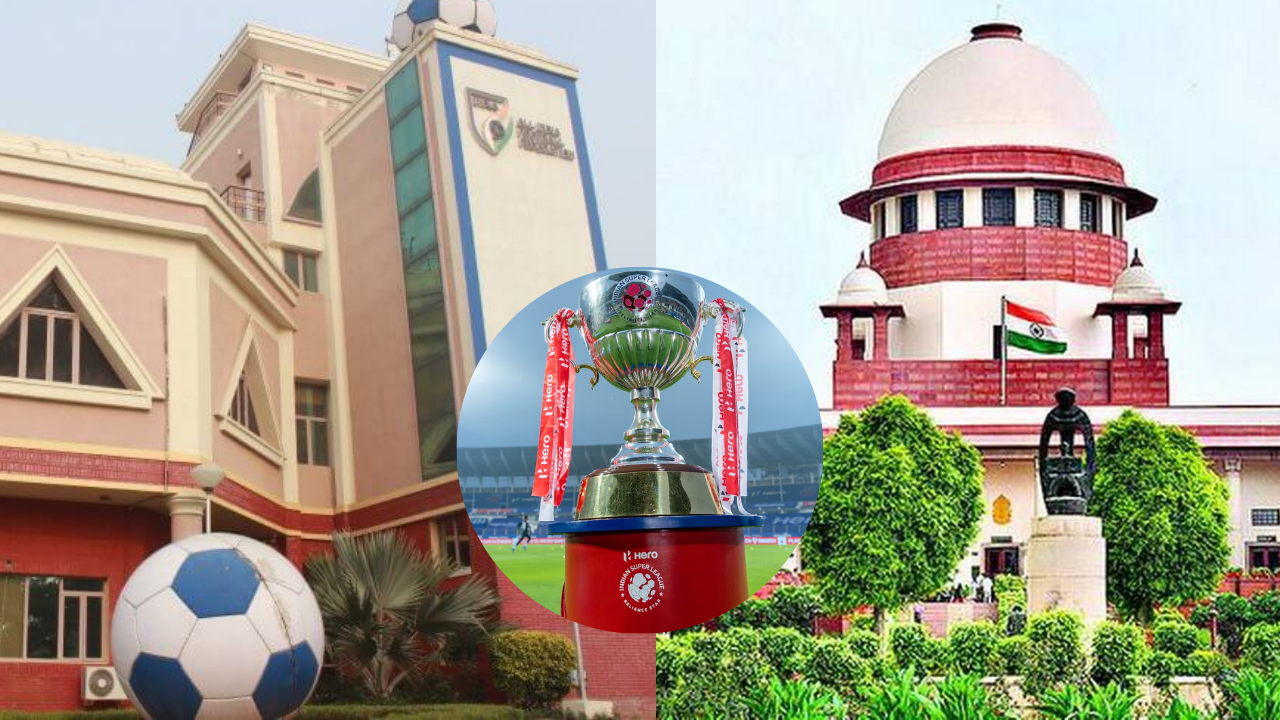
The All India Football Federation (AIFF) is preparing to move the Supreme Court this week, seeking modifications to the existing constitutional framework governing the Indian Super League (ISL) after its commercial rights tender failed to attract a single bid. Justice L Nageswara Rao, appointed by the apex court to oversee the AIFF’s functioning, met with senior officials on Sunday to discuss the crisis. The federation is expected to file its report before the court on Tuesday.
The latest development comes amid growing instability in Indian football, with several ISL clubs halting operations following the collapse of the tender process. Reigning champions Mohun Bagan Super Giant and Kerala Blasters have suspended training indefinitely, while Chennaiyin FC and Inter Kashi have paused operations and temporarily withheld salaries.
Issued on October 16, the AIFF’s Request for Proposal (RFP) sought a long-term commercial partner to manage broadcasting, sponsorship, and digital rights for the ISL. Despite initial interest from four entities – Football Sports Development Limited (FSDL), FanCode, Conscient Heritage Group, and a Monaco-based consortium – none submitted a final bid. According to multiple stakeholders, the model jointly designed by the AIFF and consulting firm KPMG was “unworkable”, as it granted the federation complete operational control while requiring the partner to bear all financial risk.
Under the proposed structure, the AIFF sought a minimum annual payment of ₹37.5 crore or 5% of gross revenue, along with additional obligations like prize money, event production, and VAR costs. Financial analysis suggested losses of up to ₹200 crore annually for any potential partner, a figure that made the deal commercially untenable.
The federation’s governing council plan further discouraged bidders. With six members, two from AIFF and just one representing the partner, decision-making authority would remain heavily skewed toward the federation.
Now, as per sources, the AIFF intends to seek relief from the Supreme Court on three key constitutional provisions that currently limit flexibility:
- Promotion and Relegation: The existing mandate requires an open league structure, creating uncertainty for commercial investors seeking stability.
- League Ownership: The order stipulates that the ISL must be owned by the federation, restricting private investment models.
- Operational Control: The league must be operated solely by AIFF, which prevents any external entity from having a meaningful say in management or planning.
These clauses, introduced to ensure transparency and federation control, have inadvertently deterred investors who expect autonomy commensurate with their financial commitment.
For the AIFF, the ISL tender represented more than a commercial partnership, it was a potential financial lifeline. Without it, the federation risks tightening budgets across grassroots programs, national teams, and developmental initiatives.
As AIFF readies its plea before the Supreme Court, Indian football stands at a critical juncture. The court’s decision in the coming days could determine not just the future of the ISL, but the financial and structural direction of Indian football itself.
Also Read: EXCLUSIVE | Ryan Williams: ‘I Hope to Inspire Others Like Me to Play for India’